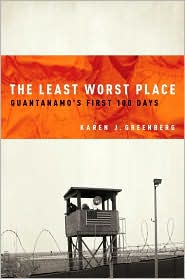By Ben Heath
To continue the discussion of Professor Philip Alston’s report on targeted killings, I can imagine no better discussion on the self-defense rationale for drone strikes than that presented by Marko Milanovic at the EJIL blog. (At Opinio Juris, Kenneth Anderson promises a response, which will most certainly provide for interesting debate.)
I also fully agree with Milanovic’s critique of Alston’s assertion that, outside of armed conflict, “the use of drones for targeted killing is almost never likely to be legal.” This statement is unncessarily conclusory: there should be some limited room for these strikes in the law enforcement paradigm of human rights, provided that the target poses a significant danger, that no opportunity for capture exists, etc. One imagines that this might be the case in countries where the government holds only loose control over wide swaths of territory. But, to be sure, drone strikes on the New Jersey Turnpike are almost certainly illegal.
I would not presume to step further into such well-covered ground. Instead, I will use this space to highlight some other aspects of the report, while recognizing that these are definitely sidenotes to the major issues.

 By John Wunderlin
By John Wunderlin